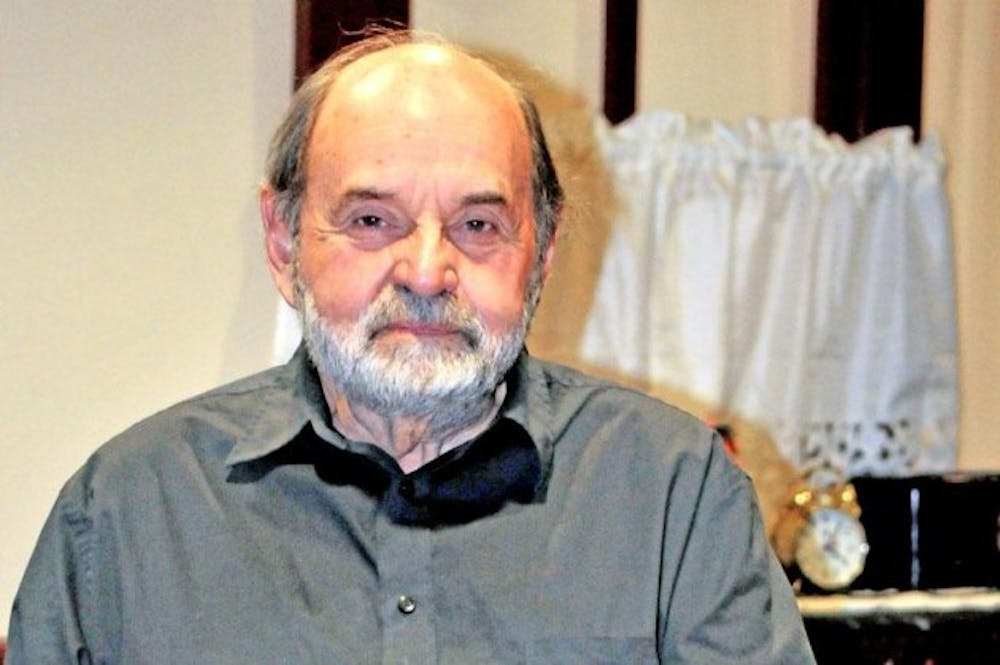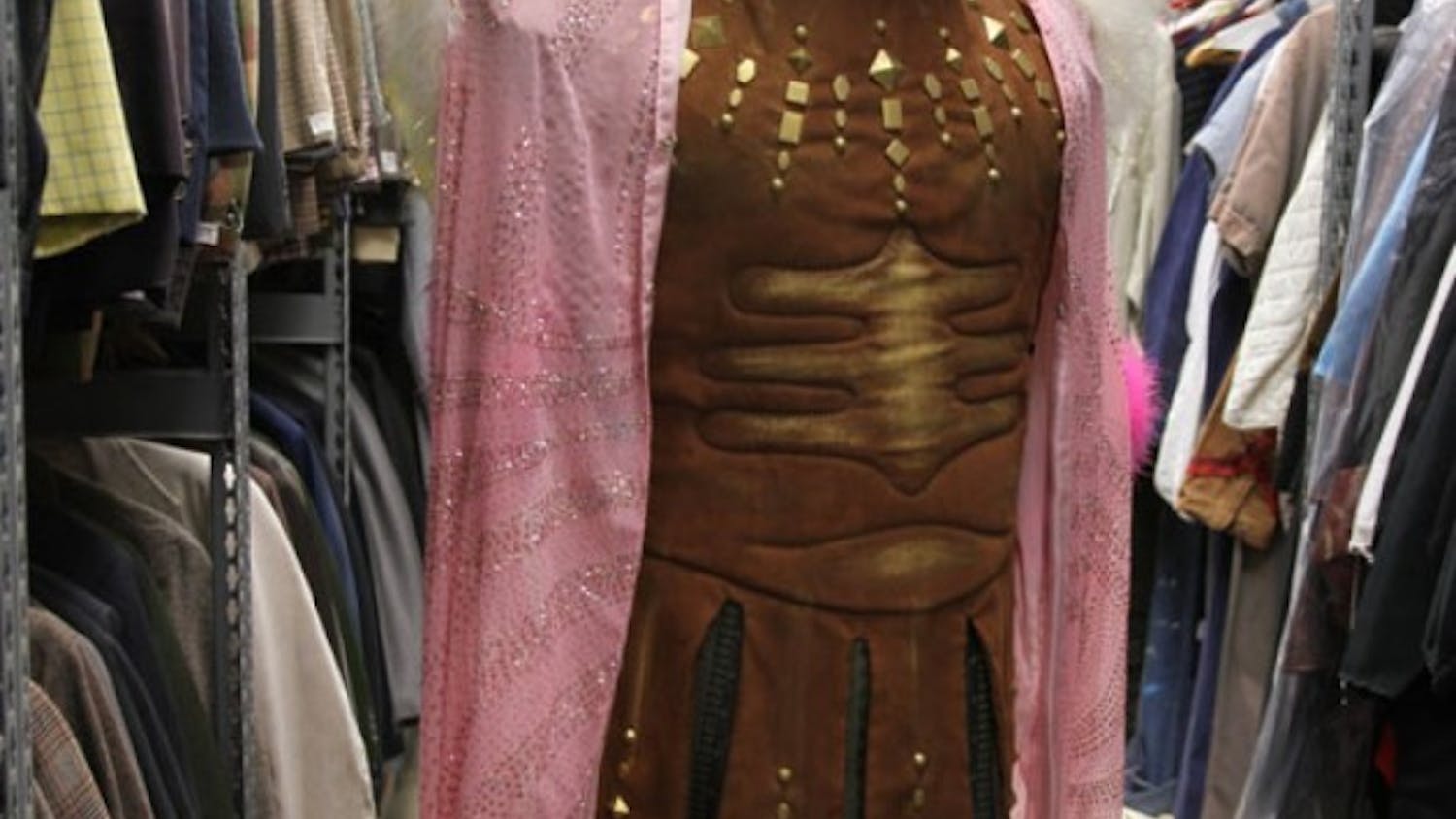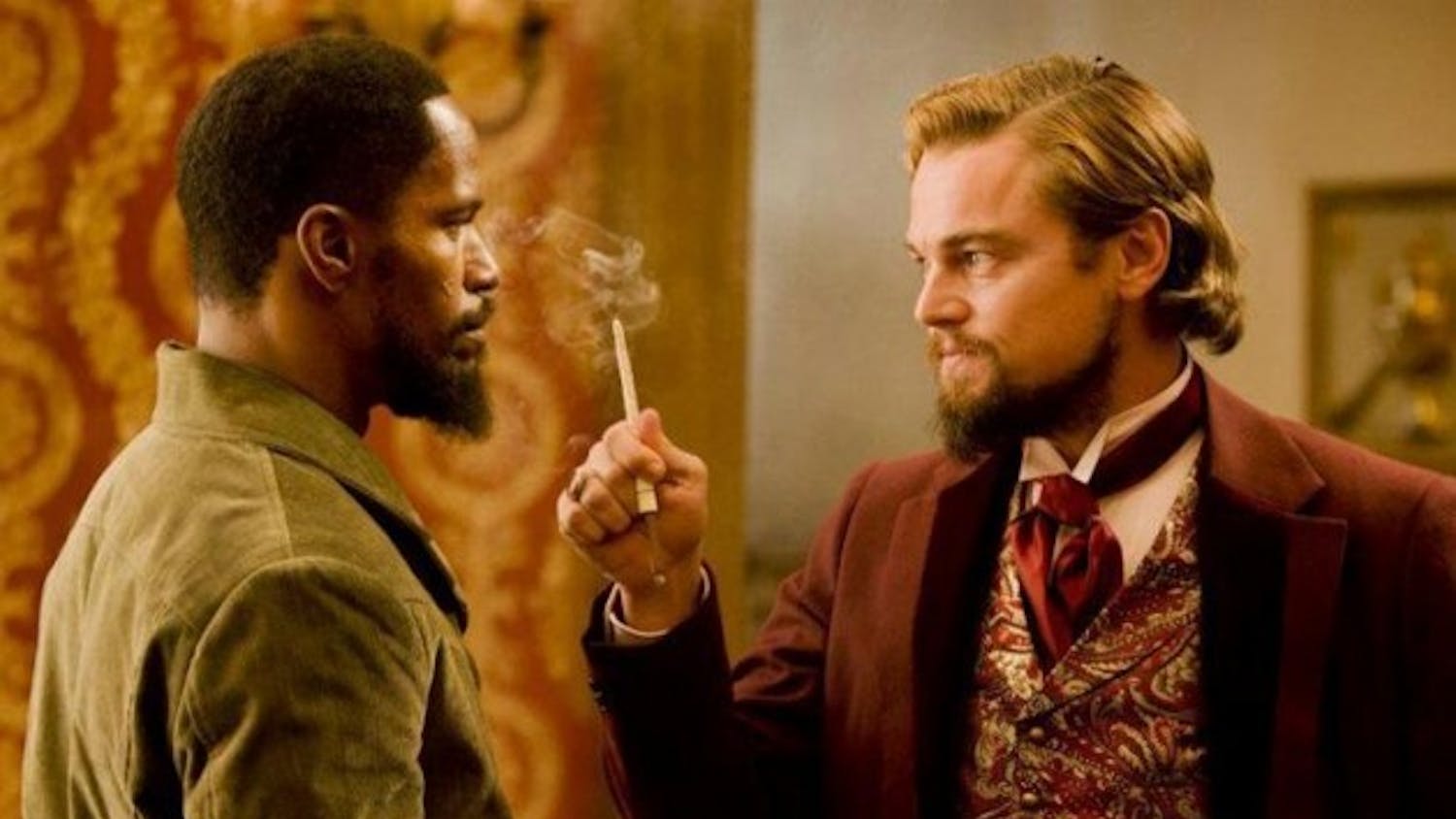His smile beams from behind his bushy beard as stories of plays past drip from his lips. He walks across the stage floor explaining everything, from the set to the state-of-the-art lighting system above his head, and how essential every piece is. Two minutes on a stage with him is more than enough time to realize that this is more than a passion – this is his life.
Former UB professor Saul Elkin has spent his life in the spotlight. From transforming the theater department at UB to founding numerous drama venues – including Shakespeare in the Park – Elkin's love of the performing arts has had an impact on everything and everyone around him.
Setting the stage
Elkin was born and raised in the cultural hub of the world – New York City. His parents were Russian and Romanian Jewish immigrants and as a result Elkin's first language was Yiddish, not English. Though his parents had no way of knowing this when Elkin was a child, their choice to teach him Yiddish was what set him on the path to becoming an actor.
When he was 8 years old, Elkin heard about an active Yiddish theater looking for a child to play a lead role in an upcoming production. This was the beginning of what would become a long and illustrious career.
"They needed a little boy for a play, I could speak the language, and at the age of 8 I started a career in theater that I haven't stop doing since," Elkin said.
From then on Elkin was hooked. He had fallen in love with acting.
At times, though, he wasn't sure he would always be an actor. Throughout his life and education Elkin pondered what he would do when he got older and had to settle on a career. But every time his mind strayed from the stage it would find itself right back there again in time.
"From the time I was a kid and into high school, and eventually in college, and then into professional work, I realized there was nothing else that I wanted to do or satisfied me the way acting did," Elkin said.
Elkin went on to receive two degrees from Columbia University, a Ph.D. from Carnegie Mellon University, and perform in and direct hundreds of Broadway plays. When he finally came to Buffalo, all of that expertise came with him.
Taking on a new role
It was in 1969 that Elkin found his way to UB. When he received the invitation to come and teach at the school on a one-year contract he was an out-of-work actor and decided that he'd "give it a shot."
He had no idea the impact he would have.
When he arrived at UB, there wasn't even a theatre department and only two other professors were in the program. But, in time, Elkin would change that.
Over his 40-year stay at UB, Elkin turned UB theatre from a small program located in the basement of Harriman Hall on South Campus into a thriving department. His enthusiasm for theater and drama spread to his students and through it he created life-long bonds.
Two students in particular who stand out in Elkin's mind are Abbe Raven and her husband, Martin Tackel. They were some of his first students at UB and to this day they still keep in touch.
Raven, who is currently the president and CEO of the A&E television network, is thankful to Elkin for all that he did for her and who he helped her become.
"In many respects, I owe to Saul who I am today as a professional in the television business," Raven said. "Saul saw in me…someone whom he could depend on to get things done behind the scenes, someone who wasn't afraid to get her hands dirty or to take on the next tough job – and he took a chance on me, as an untried production stage manager, when others were perhaps more experienced.
"In my career as an executive, I have often done the same thing – taken a chance on someone whom my instinct told me was the right choice for the right job. Saul taught me that such risks are worth taking if one has the necessary confidence in one's instincts and experience."
Raven's not alone in her admiration for all that Elkin did. Tackel shares many of the same sentiments as his wife. Now a successful lawyer, Tackel looks back on the days he spent learning under Elkin with great fondness. He describes Elkin as "a teacher's teacher," a natural.
More than that, though, Tackel remembers the passion with which Elkin conducted his classes. The level of material Elkin would bring to his classroom was something no other theater professor could touch.
"What was so wonderful about Saul, as a theatre practitioner and scholar, was that he celebrated and exposed us to all forms of theatre and drama, from the traditional to the contemporary – without the slightest hint of orthodoxy or ideology, this at a time when little else reigned but radical chic," Tackel said.
It wasn't only his students who valued all that Elkin had to offer, though. Through his tenure at UB he managed to rack up several awards, including the prestigious Chancellor's Award for Excellence in Teaching and being named a Distinguished Service Professor in 1996.
Elkin's influence has not only had an effect at UB, however. With help from his students, Elkin moved his theater expertise from the classroom to the whole city of Buffalo.
A bigger stage
Shakespeare in Delaware Park is synonymous with Buffalo summer. This free production of Shakespeare's greatest works is an event that tens of thousands flock to every year. Second only to New York City's Shakespeare Festival in Central Park, Shakespeare in Delaware Park has put on 76 productions in its 36 years of existence.
This wouldn't have been possible without Elkin.
Although he did found the program, the original inspiration for Shakespeare in Delaware Park did not come from Elkin. Rather, it came from Elkin's dissertation mentor, Joseph Papp – the man responsible for the New York Shakespeare Festival. Elkin says that Papp "nudged" him into doing it.
While it now stands on its own, Shakespeare in Delaware Park was not always an independent organization. When it first started out it was featured as a part of UB's summer sessions. Students could sign up for the course and receive credit for taking part in the plays.
As the years went by, however, Elkin began to hire on more and more professional actors, and as he did so the cost of the productions began to rise. It was after about a decade and a half of doing Shakespeare that finances became a serious issue.
"About 15 years in, UB and the state were having one of those very familiar financial crises and they stopped funding [Shakespeare in the Park] and we reinvented ourselves as a separate not for profit," Elkin said. "So, we are now in our 37th year, but for the last 22 years we have been independent from UB."
Things went well for a while after that. M&T Bank and several other local businesses began to sponsor the event and during intermission, the theater group would pass around a hat for people to make donations. Since the show is free, people are more often than not very generous with their donations, according to Elkin.
That would not be the end of Shakespeare in the Park's financial woes, though. In September 2010, former County Executive Chris Collins made severe budget cuts to many of the area's cultural programs.
Shakespeare in the Park lost 25 percent of its budget to the cuts – $81,000.
"[The Chris Collins budget cuts] had a tremendous impact on Shakespeare in the Park," Elkin said. "It put us in a real dangerous situation last summer. We really had to tighten our belts and pull way back in order to get the season on."
Despite the financial setback, Elkin and Shakespeare made it through the season.
Fortunately for the members of Shakespeare in the Park, earlier this year they had their full funding returned when Collins lost the election and Mark Poloncarz took over as the county executive.
Elkin's troupe
Off the stage, Elkin takes on the role of husband to his wife Janine Elkin and father to his children Todd, Evan, Rebecca, and Emily. He was more than a father, though – he was an inspiration.
To see how much influence Elkin has on those around him, one need not look farther than his daughter, Rebecca Elkin. Growing up, she not only began acting by the time she was 3 months old, but also acted alongside her father in The Diary of Anne Frank, as well as King Leer.
"To me, being on stage is the best feeling in the world," Rebecca Elkin said. "That is something that my dad and I have always shared and to get to experience it together in the same production was magical to me. I cherished not only being on stage together, but the time we got to spend during rehearsals, cast parties, and drives home after a show."
Though she no longer acts, Rebecca Elkin's life is still ingrained with theater because of her father. Now out of college, she has taken up a career as a drama therapist. She uses the ideals of story telling, role, ritual, and other aspects of theater that her father instilled in her to help children in a Pediatric Intensive Care Unit of a children's hospital in New York City.
Though all of his children are now grown up and out of the house, Elkin continues to spread his influence. He's still the artistic director of Shakespeare in the Park, he's a co-founder of the Jewish Repertory Theater in downtown Buffalo, he continues to act and direct all around the city, and he even occasionally still teaches a class or two.
But most of all he's still a husband and caring father.
"My father is in the truest sense of the word amensch," Rebecca Elkin said. "His warmth and generosity of spirit are second to none."
Email: arts@ubspectrum.com





